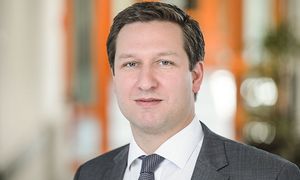Burnout prevention and crisis intervention for medical employees
Sustained physical and psychological stress, as often associated with the intensive care for COVID-19 patients, increases the risk of burn-out syndromes. Since it is now clear to all of us that COVID-19 is not a short sprint but a marathon, we at CMH have developed a burnout prevention and crisis intervention concept together with the psycho-oncological-neuropsychological service and the counseling office for employees at UKW. This provides, among others, for a professional contact person to be available around the clock to offer support either immediately by telephone or in a personal meeting.
Contact person
Prof. Dr. med. Stefan Unterecker
Dr. med. Bodo Warrings
For whom the offer applies as well as detailed information on the offer, hotline and contact addresses, please see the PPP's focus page as well as our constantly updated flyer.
Employee survey on stress during the pandemic
We are investigating the impact of Corona-related stress on University Hospital employees directly involved in the care of Covid 19 patients through an online survey. The aim is to define working conditions and environmental situations that are particularly stressful for employees as a starting point for the prevention of burn-out syndromes.
Contact
The employee survey is coordinated by the Institute for Clinical Epidemiology and Biometry at the University of Würzburg with the participation of the CMH.
Prof. Dr. phil. Michael Schuler
Prof. Dr. rer. nat. Grit Hein
Corona and anxiety disorders – Student Survey
At the Chair of Psychology I, specific hypotheses about the development of anxiety disorders as a result of the stress associated with the Corona pandemic are being tested. The hypotheses are based on characteristics that have already been identified as relevant in the context of the SFB-TRR 58.
For this purpose, a cross-sectional survey of more than 4000 Würzburg, Berlin, and Freiburg students was conducted during the peak of the April 2020 lockdown, and their data are analyzed for predictors of reported anxiety and safety behaviors.
Preliminary results suggest that anxiety behavior is best predicted by traits that assess affect and fear; safety behavior is most likely to be predicted by cognitive factors such as information evaluation or media use.
Mega Cohort of the SFB TR 58
As a next step, the Z02 subject cohort of SFB-TRR 58 will be re-examined for changes in anxiety levels, psychopathology, and well-being starting in September 2020. Because this cohort was carefully characterized prior to the Corona outbreak, we have a unique opportunity to decipher important psychological and neurobiological risk and resilience factors that predict changes induced by Corona associated stress.
A recently received VW-foundation award (Pauli/Gamer/Hein: The long-term effects of Corona on mental health: Trajectories of adaptive and maladaptive coping) will allow following up both samples during 2021.
Contact person
Prof. Dr. phil. Paul Pauli
Corona Health App
The Corona Health App of the Robert Koch Institute (RKI) was developed as part of a scientific cooperation between RKI, software companies and university partners. The Chair of Clinical Epidemiology and Biometry at the University of Würzburg and the University Hospital Würzburg with several institutions, including the CMH, were significantly involved.
The Corona Health app is not the tracking app familiar from the media, but an additional advisory and service app: users can anonymously fill out questionnaires in the app to assess the impact of the pandemic on their mental or physical health. They then receive feedback or tips on their current situation. Through the data obtained with the help of the app, the aim is to measure the stress caused by the Corona pandemic worldwide. The findings will reveal the need for improvement in existing healthcare systems and individual coping skills.
Privacy
All data is collected anonymously. Only if the user expressly consents, the location is recorded once using GPS with a coarsened resolution of eleven kilometers in order to know from which region of the world the data originates. The study was submitted to the Würzburg ethics committee and reviewed in terms of data protection. In addition, certification was obtained in accordance with the German Medical Devices Act (MPG).
Contact person
Prof. Dr. med. Marcel Romanos
Prof. Dr. rer. nat. Grit Hein
For more information, visit the app's website.
Networks EViPan Unimed and NAPKON
As part of the COVID 19-University medicine network, CMH staff are participating in two network collaborations.
In the network association EViPan Unimed, measures are to be defined, which are necessary for the preservation of the employees' health within the framework of the work package "resource management" coordinated by the University Medical Center Mainz.
In the NAPKON network for the collection of a national data set on COVID-19 patients under the leadership of he University Hospital of Cologne, the specialist working group on mental illnesses (FOSA) is coordinated from Würzburg.
GECCOplus
In addition to the German Corona Consensus Data Set (GECCO), the central German data archive on Covid-19, and in collaboration with the German Society for Psychiatry and Psychotherapy, Psychosomatics and Neurology (DGPPN), the German Society for Psychosomatic Medicine (DGPM) and the German Society for Psychosomatic Medicine (DGPM) an additional module for mental illnesses (GECCOplus) was developed.
Contact person
Prof. Dr. med. Jürgen Deckert
Prof. Dr. rer. nat. Grit Hein
Contact, Office Hours
Phone
Registration for outpatient treatment at the Department for Psychiatry for Psychiatry, Psychosomatics and Psychotherapy (PPP)
+49 931 201-77800
Registration in the university outpatient clinic
+49 931 3182839
Registration for outpatient treatment at the Department for Child and Adolescent Psychiatry, Psychosomatics and Psychotherapy (KJPPP)
+49 931 201-79600
Email and Fax
PPP Secretariat
ps_sekr@ukw.de
+49 931 201-77020
University outpatient clinic secretariat
angstambulanz@psychologie.uni-wuerzburg.de
+4931 31-828390
KJPPP Secretariat
kj_ambulanz@ukw.de
+49 931 201-78620
Address
Zentrum für Psychische Gesundheit | (Bereich F) | Margarete-Höppel-Platz 1 | 97080 Würzburg | Deutschland



